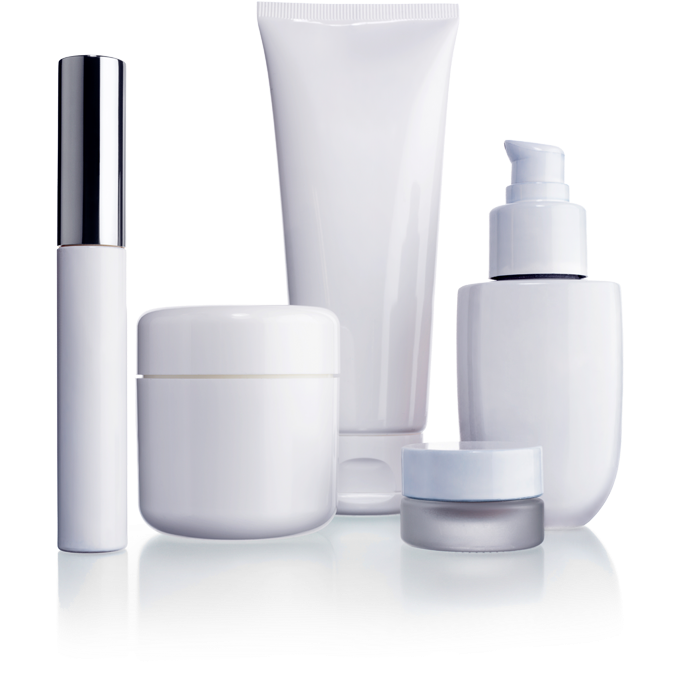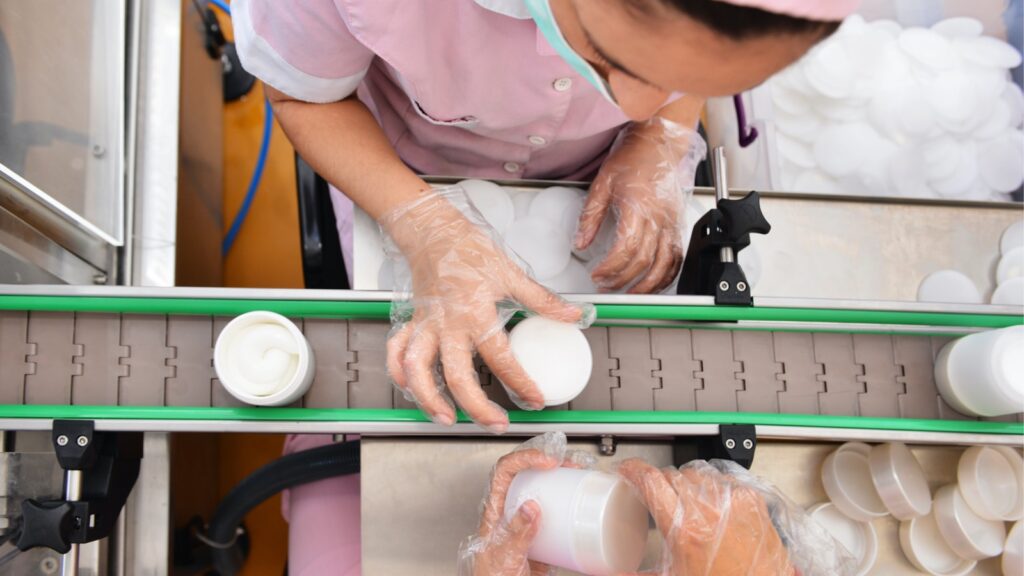Organic Skincare Private Labeling : The Ultimate guide
The surge in demand for organic skincare private labeling products is an obvious indication of consumers’ growing concern about the detrimental effects of synthetic chemicals on their skin and the environment. For entrepreneurs looking to start their own skincare brand or expand their existing line, private labeling organic skincare products may be the ultimate solution. This concept entails partnering with a manufacturer to create a line of products under your brand name and packaging, making it a prevalent approach in the skincare industry for businesses that seek custom products without investing in in-house formulation and manufacturing.
What is Private Labeling?
A private labeling service is a great option for businesses that want to create their own skincare products but lack the resources or expertise to do so in-house. By joining forces with a private label manufacturer, you can leverage their existing formulation and manufacturing capabilities, significantly reducing the time and cost involved in creating a line of skincare products. Want to get started? Click here to learn more about how we can help!
The main benefit of private labeling is the customization service it provides. Private labeling enables you to create a unique line of products that are tailored to your brand’s vision and values. You can select the ingredients, packaging, and branding that align with your brand’s aesthetic and values, allowing you to create a line of products that is truly unique.
Another benefit of an organic skincare private labeling service is the low investment required. By partnering with a private label manufacturer, you can create high-quality products without the need to invest in expensive equipment or manufacturing processes, which can significantly reduce the startup costs of creating your own skincare products.
In addition to customization and low investment, private labeling also offers faster time-to-market. Private labeling can significantly reduce the time it takes to bring your products to market, as you don’t need to spend time developing formulations, testing products, or setting up manufacturing processes. This enables you to get your products in front of customers faster, which can be critical for a successful product launch.

Why choose organic skincare private labeling?
Private label organic skincare products are made with natural ingredients grown and processed without synthetic pesticides, herbicides, and fertilizers. They also exclude synthetic fragrances, preservatives, and other harmful additives. This results in products that are gentle on the skin, non-toxic, and environmentally friendly.
Creating organic skincare products is a great way to appeal to consumers who prioritize natural and sustainable products. In fact, the global organic personal care market is expected to reach $22 billion by 2025 due to increasing consumer demand for organic and natural products.
The benefits of developing a line of private label organic skincare products are numerous.
There are several benefits to organic skincare private labeling products, including:
Low investment:
Partnering with a private label manufacturer such as Simplicity Filling Systems can save you money by allowing you to create high-quality products without investing in expensive equipment or manufacturing processes. While allowing you to create a unique line of products tailored to your brand’s vision and values.
Faster time-to-market:
Private labeling can reduce the time it takes to bring your products to market by eliminating the need to develop formulations, test products, or set up manufacturing processes.
Established supply chain:
Organic skincare private label manufacturers have established relationships with suppliers and can ensure that your products are made with high-quality ingredients.
Scalability:
Private labeling allows you to scale your business quickly and efficiently, as you can easily expand your product line or increase production volume as demand grows.
Choosing the right organic skincare private label manufacturer
Choosing the right private label manufacturer is critical to the success of your organic skincare line. Here are some key factors to consider when selecting a manufacturer:
Certifications:
To further enhance your brand’s credibility and appeal to customers, you may want to consider getting your products certified by a third-party organization. This can include certifications like USDA Organic, FDA, or Ecocert. These certifications can provide customers with peace of mind that your products are safe, sustainable, and of high quality.
Quality control:
The manufacturer should have a robust quality control system in place to ensure that your products meet the highest standards of quality and purity.
Ingredients:
The manufacturer should be transparent about the ingredients used in their formulations and should be able to provide you with a list of ingredients and their sources. This is one of the most important aspects of organic skincare private labeling.
Packaging options:
Choose a manufacturer that offers a variety of packaging options that align with your brand’s aesthetic and values.
Minimum order quantities:
Make sure that the manufacturer’s minimum order quantities are manageable for your business.

Creating your organic skincare line with private labeling
Once you’ve chosen your private label manufacturer, it’s time to start creating your organic skincare line. Here are some key steps to follow:
Define your brand:
Before you begin developing your product line, it’s important to define your brand’s vision, mission, and values. This will help guide your product development and marketing efforts.
Choose your product categories:
Decide on the types of products you want to offer, such as cleansers, moisturizers, serums, or masks.
Select your ingredients:
Work with your private label manufacturer to select high-quality organic ingredients that align with your brand’s values and target customer needs.
Develop your product formulations: Work with your manufacturer to develop product formulations that meet your desired specifications and provide the desired benefits to your customers.
Design your packaging:
Work with your manufacturer to create packaging that reflects your brand’s aesthetic and values, while also being functional and appealing to customers.
Conduct testing:
Once your products are developed, conduct testing to ensure that they meet your desired quality standards and perform as intended.
Launch your products:
Once your products are ready, it’s time to launch! Develop a marketing plan that aligns with your brand’s values and target audience to promote your products and grow your business.
Marketing your skincare line
Marketing is a critical part of launching and growing your organic skincare line. Here are some key strategies to consider:
Social media:
Use social media platforms like Instagram, Facebook, and Twitter to showcase your products and engage with potential customers.
Influencer partnerships:
Partner with influencers in your niche to promote your products and increase brand awareness.
Content marketing:
Create high-quality content that showcases your brand’s values and expertise in the organic skincare industry.
Email marketing:
Develop an email list of interested customers and use email marketing to promote new products, sales, and other special offers.
Paid advertising:
Consider using paid advertising on platforms like Google, Facebook, and Instagram to reach a wider audience and drive sales.

Here are some additional points to consider when starting an organic skincare private label:
While scaling your skincare line it’s important to look into fulfillment options:
Skincare fulfillment services offer small businesses the ability to outsource their order fulfillment, warehousing, and shipping needs to a third-party provider. Essentially, this means that the business can focus on creating and marketing their vegan skincare products, while leaving the logistical details to the fulfillment service. The fulfillment service receives the orders, stores the products, and ships them directly to the customer on behalf of the small business. This can be a fantastic way to allow you to scale your business and focus on more important things, read more about fulfillment here.
Research your target audience that would be interested in organic skincare products:
Before developing your skincare line, it’s important to research your target audience. Who are your ideal customers? What are their skincare concerns? What ingredients and benefits are they looking for in their skincare products? Understanding your target audience will help you create products that meet their needs and align with their values.
Choose your ingredients wisely:
Organic skincare products are all about using natural, non-toxic ingredients that are beneficial for the skin. When choosing ingredients for your products, it’s important to research their benefits and potential side effects. Choose ingredients that are proven to be safe and effective for the skin, and avoid harmful chemicals and synthetic fragrances.
Create a consistent brand image:
To build brand recognition and loyalty, it’s important to create a consistent brand image across all of your products and marketing materials. This includes your packaging, branding, and messaging. Your brand image should reflect your brand’s values and mission, and should be appealing to your target audience.
Focus on sustainability:
Organic skincare products often appeal to consumers who are conscious of the environment and sustainability. To appeal to this audience, it’s important to focus on sustainability in your product development and manufacturing processes. This can include using eco-friendly packaging, sourcing ingredients from sustainable and ethical suppliers, and minimizing waste.
Stay up-to-date on industry trends:
The skincare industry is constantly evolving, with new trends and ingredients emerging all the time. To stay relevant and competitive, it’s important to stay up-to-date on industry trends and innovations. This can help you develop new products that appeal to your target audience and keep your brand fresh and exciting.
Develop a strong customer service strategy:
As with any business, strong customer service is essential for success. Develop a customer service strategy that aligns with your brand’s values and meets the needs of your target audience. This can include offering fast and responsive customer support, providing informative and helpful product information, and offering incentives like loyalty programs and discounts.
By keeping these points in mind, you can create a successful and sustainable organic skincare private label that meets the needs of your target audience and helps you achieve your business goals.
Conclusion
Private labeling organic skincare products can be a great way to start or grow a skincare business. By partnering with a private label manufacturer, you can create custom, high-quality products that align with your brand’s vision and values. Remember to choose a reputable manufacturer, develop high-quality products, and use effective marketing strategies to grow your business and reach new customers. Contact us to see how we can help!

